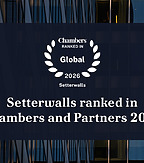Article | 7 October 2020
Is your product or service sustainable and can you truly say that you are carbon neutral?

We live in a world where sustainability and carbon offset (also referred to as climate compensation) is on everyone’s lips. Everyone wants to contribute to the global struggle for a more sustainable world while also meeting the increasing demands and expectations of consumers in that same field. This has been brought attention by, among others, the Swedish Consumer Agency, which recently conducted a quantitative and qualitative study of how consumers perceive the term ”carbon offset”. The complete results of the study can be found in the Swedish Consumer Agency’s publication on climate claims (KOV 2019/1411, June 2020). The study shows that many companies use carbon offsets in their marketing but that most consumers find it difficult to understand the actual meaning of the concept. The question you as a company need to ask yourself id: is your product or service sustainable and can you truly say that you are carbon neutral? In this article below we describe the legal conditions and current practice.
The legal conditions
According to the Swedish Marketing Act, all marketing should be in accordance with good marketing practice and must not be misleading. Examples of good marketing practice in the use of environmental and sustainability arguments include the ICC Advertising and Marketing communications Code (the ICC Code from here onward).
The ICC Code contains further requirements of honesty and reliability. Marketing must not abuse consumers’ concerns or care about the environment, exploit any ignorance of consumers in environmental matters or mislead the characteristics of a product, such as environmental impact. In other words, marketing communications must not be designed in a way that could mislead consumers as to the environmental impact environmental benefits or other environmental promotion methods of a product. Environmental and sustainability claims include not only factual claims. All types of information, symbols, logos, graphics and brand (product) names, as well as their concurrence with colours, packaging design, labels and advertising can constitute environmental and sustainability claims, regardless of the media.
In the case of vague or unspecified claims of a particular positive environmental impact (e.g. “climate friendly”, “organically safe”, “green”, or “sustainable”), these may only be used without reservation if they are valid under all reasonably foreseeable conditions. They should also be verifiable with very reassuring evidence that sustainability has been achieved according to generally accepted methods. Where comparative claims are used in relation to, for example, competitors’ products, it is important that they are precise and it must be clearly stated what constitutes the basis for the comparison. In addition, when using environmental claims, it is important that it is clear which stage of a product’s life cycle the claim is related to, and which parts or characteristics of a product/service are intended. Regarding reference to waste management, this may only be done if the method is generally accepted and easily available for consumers.
Any qualifications that clarify and accurately describe the limitations of an environmental claim must be clear, prominent and easy to understand. To the extent that reference is made to technical representations or scientific results, there must be actual support found in scientific research. The use of eco-labels and symbols is allowed to demonstrate a particular property, but not in a way that may give the wrong impression that there is official approval or third-party certification.
Examples from practice
In 2020, until this day, the Swedish Advertising Ombudsman has examined whether eight different types of advertising containing environmental claims are compatible with the ICC Code and thus the Swedish Marketing Act. Seven of these claims were ruled to be in violation and one claim was rejected on the grounds that the material in which it was presented was not considered to constitute commercial marketing. In addition, the question whether the proportion of a skin and hair care product that must be organic in order for it to be marketed as “organic” without it being misleading, and whether it is sufficient for marketing with sustainability claims to include a clickable link to more information about what the company intends with “sustainable” is now subject to trial in the Swedish Patent and Market Court (case no. PMT 687-20)
What claims were in violation and why?
Below is a summary of environmental claims ruled in violation by the Advertising Ombudsman (RO) in 2020 until today, on the grounds that they were vague and unspecified – while companies have been unable to demonstrate that they are valid or accurate under all reasonably foreseeable conditions.
- A car company was ruled to be in violation for its use of the marketing message “Goodbye Air Pollution” in their advertising for electric cars. The company could not substantiate the claim in all its interpretations, for example that the product in question and/or its production does/do not affect the environment through, for example, air pollution.
- Another car company was ruled to be in violation for its use of “[…] – a spacious SUV with no emissions” in its advertising for electric cars. Although car caused no exhaust emissions, the claim could be perceived as the car not having, or inducing, any emissions at all – which was incorrect. The car company subsequently changed the claim to “without exhaust emissions”.
- A concrete company was ruled to be in violation for its use of the message “Concrete is sustainable”. The advertisement identified a number of factors which may be assumed to be clarifications of the claim (e.g. “[…] is 100 percent recyclable”). According to RO, the original claim is perceived as a sustainability from, among other, an environmental perspective. The concrete company was not able to demonstrate a generally accepted methodology for measuring sustainability for the product in question and was considered not to have substantiated its claim.
- Another construction company was ruled to be in violation for its use of “climate friendly concrete”. The fact that the property in which the advertisement was recorded was built with concrete which had 30% less carbon footprint than “ordinary” concrete was not considered to be sufficient evidence to substantiate the claim.
- A food company was deemed in violation for its use of “Using chicken, you’re grilling for a better dinner and a better climate”. According to RO, the claim is perceived as it being good for the climate to grill their chicken, something the company has not been able to show. The fact that the advertisement referred to information on the company’s website regarding the impact of chicken on the climate did not give rise to any other assessment.
- A bus company was deemed in violation for its use of “Experience the world with climate smart and affordable travel” and “From a climate smart choice towards a greener future” in its advertisement for bus travel. In its opinion, the bus company referred to research from Chalmers University of Technology, but the research did not concern the company’s buses or showed that buses have a positive impact on the environment (only that buses comparatively have a smaller impact than cars). Moreover, the fact that the bus company ran international environmental projects or that its passengers could voluntarily offset the climate change was not considered sufficient to substantiate the claims.
- A travel company was ruled to be in violation because of its claims of carbon offsetting in the form of: “[…]therefore, we are now starting to carbon offset all trips with our own flights and your accommodation at our own hotels so that you can choose an option that is both relaxing, comfortable and carbon offset” in their advertising for travel. According to RO, the claim is perceived that the travel company carbon offsetting neutralizes all of the company’s flights and the climate impact of the accommodation. The company could not demonstrate the extent to which the carbon offset was made and the claim was therefore considered to be misleading.
Summary and advice
The advertising ombudsman’s practice clearly shows that neither good ambitions nor good initiatives in the field of the environment are sufficient to claim that a product or service is sustainable or similar. Nor is it enough for a product to have a relatively smaller environmental impact compared to another alternative. In order to justify the use of claims that a product is sustainable, climate smart or emission free, it is necessary to take into account the entire life cycle of the product and to substantiate the data by reference to generally accepted methods of this assessment. The question is whether there are any such methods at all today, and as a company one should perhaps consider what possibilities there are to develop methods and principles for how sustainability should be measured at industry level. This would contribute to greater transparency, for the benefit of both businesses and consumers. As a company, great care should therefore be taken when using or referring to environmental claims and in particular the concept of carbon offsetting. As we have explained above, the RO seems to adopt the position that carbon offsetting means neutralising all the environmental impact of the products or services in question, which is obviously a very high demand.
At Setterwalls, we continuously assist clients with advice on marketing design and market law disputes – therefore do not hesitate to contact us if you have questions about, or linked to, your own or your competitors’ marketing.
The content of this article is a general statement and constitutes general information and does not constitute legal advice to provide grounds for assessment in an individual case.


